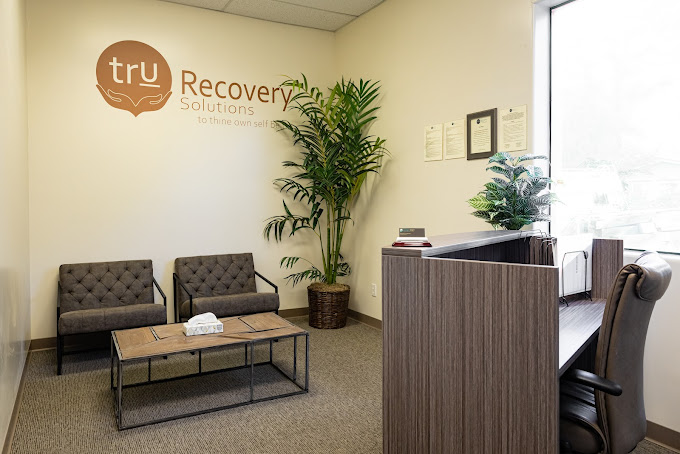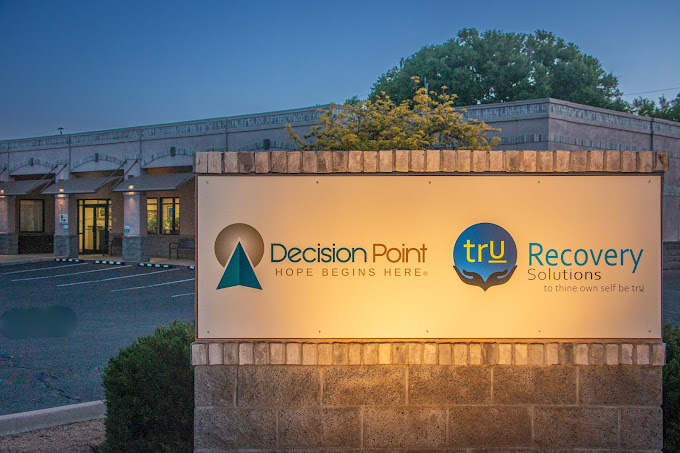

Working To Make Your Recovery Affordable By Accepting Most Insurances
Do not be discouraged if you are not seeing your insurance provider listed on our website. We take many types of insurance! Call Today: (844) 292-5010
-
 In-Network: BCBS
In-Network: BCBS -
 In-Network: Aetna
In-Network: Aetna -
 In-Network: Tricare
In-Network: Tricare -
 In-Network: Cigna
In-Network: Cigna -
 Proudly Caring for Veterans
Proudly Caring for Veterans -
 In-Network: Carelon
In-Network: Carelon -
 In-Network: MultiPlan
In-Network: MultiPlan -
 In-Network: HMC
In-Network: HMC
Addiction Detox Program in Prescott, AZ
Get Clean at Our Medically-Supervised Drug & Alcohol Detox Center
The first step in treating a drug or alcohol addiction is usually detoxing your body from its chemical impact. People with strong addictions to alcohol or drugs often cannot discontinue the use of those substances all at once or “cold turkey.” In doing so, the likelihood of there being a painful and potentially dangerous withdrawal period will go up.

To start rehab safely, start with an addiction detox program from Decision Point Center, one of Arizona's most trusted addiction detox centers. As part of our various recovery programs, you can use detox to begin on the right foot. Indeed, some patients who come to our doors must start with detox if it is deemed unsafe to attempt an immediate recovery without it. As each patient is unique when detoxing from alcohol or drugs, we will evaluate the best process for your needs depending on how you come to our detox center. Our goal is to help you reach sobriety with as little stress as possible, no matter what that addiction recovery program looks like.
Learn how to get started in an addiction detox program by Decision Point Center in Prescott. Call (844) 292-5010 or contact us online.
What is Addiction Detox?
Addiction detox is the process of clearing an addictive substance from the body while managing the physical and emotional effects of withdrawal. It’s often the first step in recovery, designed to help individuals safely adjust to life without the substance they’ve become dependent on. During detox, people may experience symptoms like nausea, anxiety, or fatigue as their body adapts to the absence of the substance. Because some withdrawal symptoms can be complex or even dangerous, having professional support is key to ensuring safety and comfort throughout the process. This stage sets the foundation for longer-term treatment and recovery.
Specifically at Decision Point Center, we use a smaller, in-house detox center that is more individualized than what you might find at other rehab centers, housing up to six people at a time. A nurse is on standby 24/7, a doctor provides medical supervision, a detox technician is on staff, and a case manager is available during the week for added guidance. Overall, you will have ready access to staff at all times thanks to our more personal-feeling approach to addiction detox.

What Should I Expect When Detoxing?
Detoxing from drugs or alcohol can be a difficult and uncomfortable process, as the body adjusts to the absence of the substance it has become dependent on. Depending on the severity and duration of the addiction, the withdrawal symptoms can range from mild to severe.
Common withdrawal symptoms experienced during detox include:
- Nausea
- Vomiting
- Diarrhea
- Muscle aches and pains
- Headaches
- Sweating
- Anxiety
- Depression
- Insomnia
- Irritability
In more severe cases, patients may experience seizures, hallucinations, or delirium tremens (DTs), which can be life-threatening if not treated promptly. The intensity and duration of these symptoms can vary depending on several factors, including the substance being detoxed from, the duration and severity of the addiction, and the patient's overall health and medical history. Withdrawal symptoms typically begin within a few hours to a few days after the last use of the substance and may last for several days to several weeks.
During the detox process, patients can expect to receive medical and emotional support to help manage their symptoms and reduce the risk of complications. Medical professionals may administer medication-assisted treatment to help ease the discomfort of withdrawal and reduce the risk of seizures or other serious complications. Emotional support may include therapy, counseling, or participation in support groups. Patients can also expect to receive guidance and support in developing a plan for ongoing treatment and recovery to help maintain sobriety and prevent relapse.

What Types of Addiction Need Detox?
Addiction affects everyone differently, which is why it is important to consult a professional from Decision Point Center about your substance use history. Our rehab specialists can determine what type of detox is necessary for you if any.
The addiction detoxification process can help kickstart the recovery process from addiction to substances including:
What Happens After Detox?
Once detox is finished, our staff will guide you into the next steps in your recovery process. We can offer a hand and genuine support, backed by our decades of collective experience and understanding. Our goal is to point you or your loved one in the direction of long-term recovery that goes well beyond just addiction detoxification.
Learn About Addiction Detox from Our Professionals
It can be intimidating to learn that you need addiction detox as part of your recovery plan, but Decision Point Center in Prescott, Arizona, is here to make this process as easy as possible for you. With our professionals leading the way and standing right by your side at every moment, we know that you will feel confident that detox and recovery are the right choices. You deserve a happy, safe future without addiction, so we hope you take the first step towards it today with us.
Please reach out today by dialing (844) 292-5010.

Real Clients. Real Recoveries.
-
“Thank you for helping me navigate through one of the most difficult times in my life. I really attribute my experience while in your care to saving my life and career.”- Phil O.
-
“Doug and Wade really helped me and my loved ones through a tough time.”- J.C.
-
“Steve in admissions was extremely helpful for our family as we tried to choose a program recently.”- Paula A.
-
“Decision Point was different from the beginning. A team approach from professionals who care.”- Candace
-
“Thank you for helping me be a better person. Doug and Wade really helped me and my loved ones through a tough time.”- JD
-
“The moment I was in their hands, my transformation began. They actually cared. They actually WANTED to help me. I wasn't just another paycheck to them. They asked questions. They made a plan for me. And they followed it to the T.”- Amber B.
-
“THIS MAN MOVED MOUNTAINS to literally help save her!”- Corin C.
-
This facility deserves a special recognition. They have been around for years but the services they provide and the recovery that comes out of their facility, only seem to grow over the years. I have worked with Stephen from the admissions department and he has always gone above and beyond to make sure clients feel comfortable and get the care they need. I definitely recommend Decision Point Center!!!!- Ashley B.

We Understand You May Have Questions
Let Us Provide You With Answer
-
What Is Residential Treatment?Residential allows the individual a safe environment to engage in therapy and enrichment activities to confront the underlying issues that exacerbate their substance abuse or dual diagnosis. After our assessment and evaluation period with our therapists, counselors, and doctors we generate your plan to provide a treatment experience uniquely tailored to the individual.
-
What types of disorders are covered under dual diagnosis treatment?There are several mental health disorders that we treat in our dual diagnosis program. Some mental health disorders treated at our dual diagnosis program at Decision Point Center are Depression, Bipolar disorder, Generalized anxiety disorder (GAD), Panic disorder, Obsessive-compulsive disorder (OCD), Child and adult trauma, Post-traumatic stress disorder (PTSD), Borderline personality disorder, Attention deficit disorder (ADD), Attention deficit hyperactive disorder (ADHD).
-
Can I Afford Treatment?Thanks to insurance plans and financing options, more people than ever before are able to receive the treatment they need. When you call our Admissions Team, they will leave no stone unturned in finding ways for you to obtain treatment including setting up a payment plan that meets your needs. You can even verify your insurance coverage here.
-
What is the process to get someone into treatment?The first step is to reach out to our team, so we can help point you in the right direction. There are probably thousands of questions that you may have about addiction treatment, and we are here to help answer any questions.



Meet Our Dedicated Team
-
 Mary Ann Zuppardo Executive Director
Mary Ann Zuppardo Executive Director -
 Dr. Terry Vaughan Medical Director, Psychiatrist
Dr. Terry Vaughan Medical Director, Psychiatrist -
 Stephen Leza Director of Admissions & Business Development
Stephen Leza Director of Admissions & Business Development -
 Lindy Howard, MA, LPC Clinical Director
Lindy Howard, MA, LPC Clinical Director -
 Luke Bailey Director of Compliance
Luke Bailey Director of Compliance -
 Deborah Pallett, P.A. Physician Assistant
Deborah Pallett, P.A. Physician Assistant -
 Dr. Julia L. Summers, LPC DBT Therapist
Dr. Julia L. Summers, LPC DBT Therapist -
 Douglas Winter MS, LISAC, CSAT Primary Therapist
Douglas Winter MS, LISAC, CSAT Primary Therapist -
 Mark Branson, MA, LPC, NCC Trauma Therapist
Mark Branson, MA, LPC, NCC Trauma Therapist -
 Troy Trout Outdoor Activity Coordinator
Troy Trout Outdoor Activity Coordinator





















